Table of Contents
- Prioritize Sleep
- Practice Regular Exercise
- Cultivate Healthy Relationships
- Engage in Mindfulness and Meditation
- Nurture a Balanced Diet
- Take Breaks and Relax
- Seek Professional Help when Needed
1. Prioritize Sleep
Quality sleep plays a crucial role in maintaining good mental health. Make sure you have a consistent sleep schedule, create a peaceful environment, and avoid electronic devices before bedtime.
2. Practice Regular Exercise
Physical activity has numerous mental health benefits. Engage in activities you enjoy, such as walking, yoga, or dancing. Regular exercise reduces stress, improves mood, and enhances overall well-being.
Why is regular exercise important for mental health?
Regular exercise has numerous benefits for mental health. It helps reduce symptoms of anxiety, depression, and stress. Exercise also releases endorphins, the "feel-good" hormones that improve mood and increase feelings of happiness. Moreover, physical activity improves self-confidence, boosts self-esteem, and promotes better sleep patterns.
How often should I exercise?
It is recommended to engage in at least 150 minutes of moderate-intensity aerobic activity or 75 minutes of vigorous-intensity aerobic activity per week. Additionally, strength training exercises should be done at least twice a week to maintain overall fitness and muscle strength.
Types of exercises you can try:
- Cardiovascular exercises (e.g., walking, running, cycling, swimming)
- Yoga or Pilates for flexibility and relaxation
- Strength training using weights or resistance bands
- Dancing or aerobic classes
- Outdoor activities like hiking, gardening, or playing a sport
Tips for incorporating exercise into your routine:
- Schedule dedicated time for physical activity each day.
- Find activities that you enjoy and are more likely to stick to.
- Start small and gradually increase the intensity and duration of your workouts.
- Involve a friend or family member to make exercise more enjoyable and keep you accountable.
- Listen to your body and don't overexert yourself - find a balance between challenging yourself and avoiding injury.
Remember, regular exercise is not only beneficial for physical health but also plays a vital role in maintaining good mental health. Incorporating exercise into your self-care routine can help improve your overall well-being and reduce the risk of mental health issues.
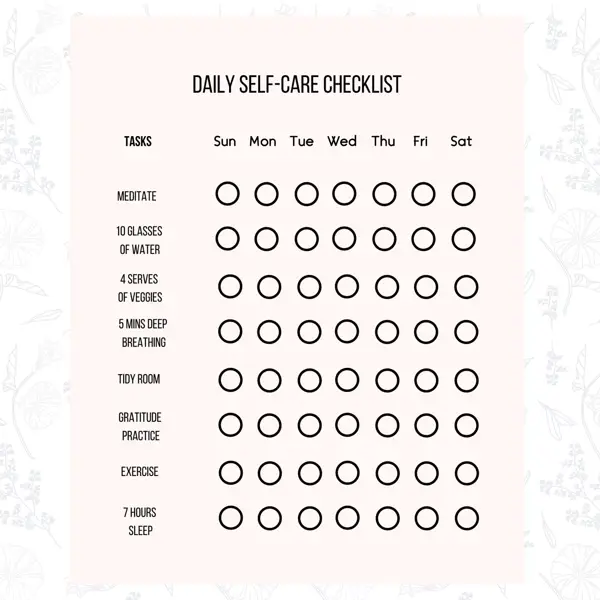
3. Cultivate Healthy Relationships
Building and nurturing positive relationships is vital for mental well-being. Surround yourself with supportive and caring individuals who uplift and encourage you.
Maintaining healthy relationships is crucial for promoting positive mental health. Here are three essential practices to include in your self-care checklist:
1. Communication
Open and honest communication is key to building and nurturing healthy relationships. Regularly express your thoughts and emotions with your loved ones. Practice active listening to understand their perspectives as well. Healthy communication fosters trust, understanding, and support.
2. Boundaries
Setting and respecting boundaries is vital for maintaining healthy relationships. Clearly define and communicate your boundaries with others, ensuring your emotional and physical well-being. Respect the boundaries set by others and understand that boundaries are necessary for everyone's mental health.
3. Supportive Environment
Create and foster a supportive environment that promotes mental well-being. Surround yourself with positive, compassionate individuals who uplift and inspire you. Engage in activities together that promote connection and positivity, such as shared hobbies or regular quality time.
Remember, cultivating healthy relationships takes time and effort. Regularly evaluate and adjust your approach to ensure you're fostering a positive environment for your mental health.
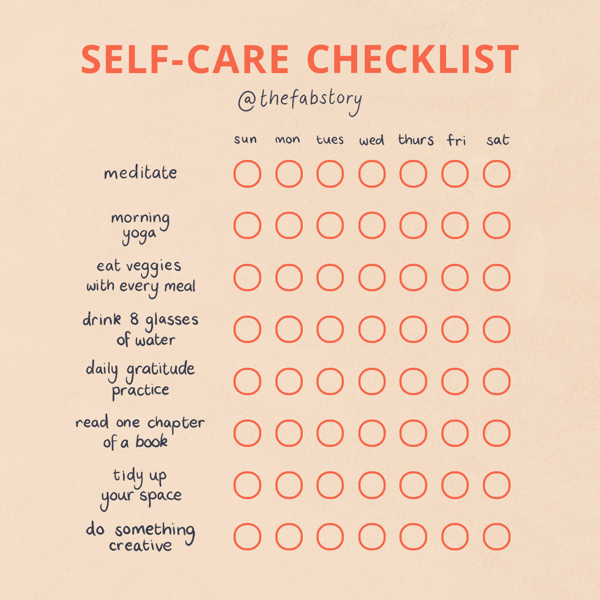
4. Engage in Mindfulness and Meditation
Mindfulness and meditation practices help in reducing anxiety and stress. Incorporate these techniques into your daily routine to increase self-awareness, focus, and inner calmness.
Mindfulness and meditation practices can greatly benefit your mental health. Here are some tips to help you engage in mindfulness and meditation as part of your self-care routine:
- Schedule regular meditation sessions: Set aside a specific time each day to practice meditation. It could be in the morning, during a break, or before bed.
- Find a quiet and comfortable space: Create an environment where you can focus and relax. Choose a quiet room or find a peaceful outdoor spot.
- Start with guided meditations: If you're new to meditation, consider using guided meditation apps or videos. They can help you learn the techniques and guide you through the process.
- Focus on your breath: During meditation, concentrate on your breathing. Take deep breaths in and out, and let go of any thoughts that arise. Allow yourself to be fully present in the moment.
- Practice mindfulness throughout the day: Engage in mindfulness exercises even when you're not meditating. Pay attention to your senses, thoughts, and emotions. Stay fully present in your daily activities.
- Explore different meditation techniques: There are various types of meditation, such as mindfulness meditation, loving-kindness meditation, or body scan meditation. Experiment with different techniques to find what works best for you.
- Be patient and gentle with yourself: Remember that meditation is a practice, and it takes time to develop. Be patient and compassionate towards yourself as you navigate your meditation journey.
- Consider joining a meditation group: Look for local meditation groups or communities where you can practice meditation with others. This can provide additional support and a sense of community.
- Use meditation as a coping mechanism: When you feel stressed, overwhelmed, or anxious, turn to meditation as a tool to calm your mind and find inner peace. Make it a part of your self-care routine.
Engaging in mindfulness and meditation regularly can help reduce stress, increase self-awareness, and promote overall mental well-being. Remember to prioritize your mental health and make time for self-care.
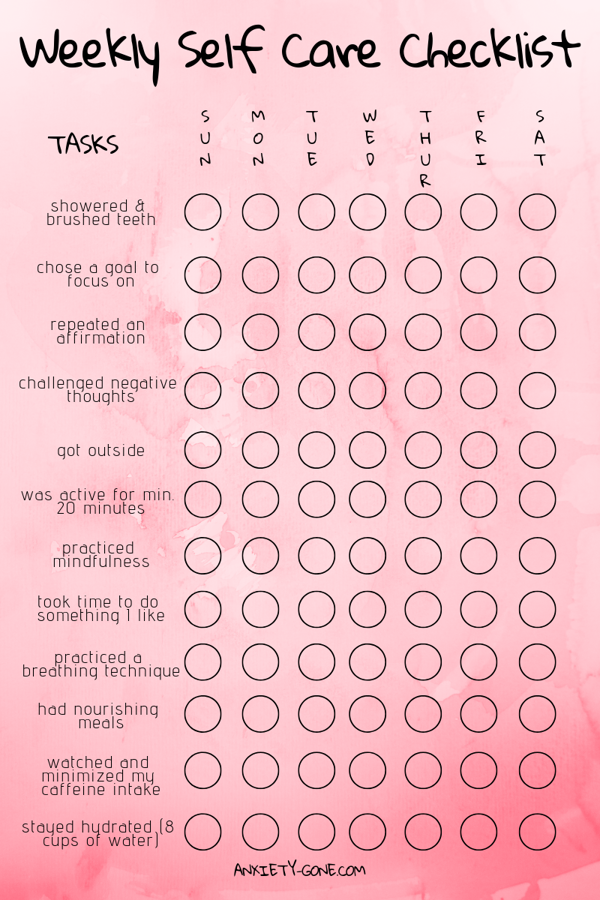
5. Nurture a Balanced Diet
A nutritious and balanced diet has a significant impact on mental health. Ensure your diet includes whole grains, fruits, vegetables, lean proteins, and healthy fats to promote a stable mood and energy levels.
1. Consume a variety of foods:
- Eat a mix of fruits, vegetables, whole grains, lean proteins, and healthy fats.
- Avoid excessive consumption of processed and sugary foods.
2. Stay hydrated:
- Drink enough water throughout the day to keep your body and mind refreshed.
- Avoid excessive intake of caffeinated beverages.
3. Practice portion control:
- Be mindful of the quantity of food you consume to maintain a healthy weight.
- Avoid overeating or skipping meals.
4. Include essential nutrients:
- Ensure you get enough vitamins, minerals, and antioxidants through a well-rounded diet.
- Consider supplements if necessary after consulting a healthcare professional.
5. Listen to your body:
- Eat when you're hungry and stop when you're full.
- Pay attention to your body's signals and adjust your diet accordingly.
Remember, nurturing a balanced diet plays a crucial role in maintaining good mental health. Take care of your mind and body!
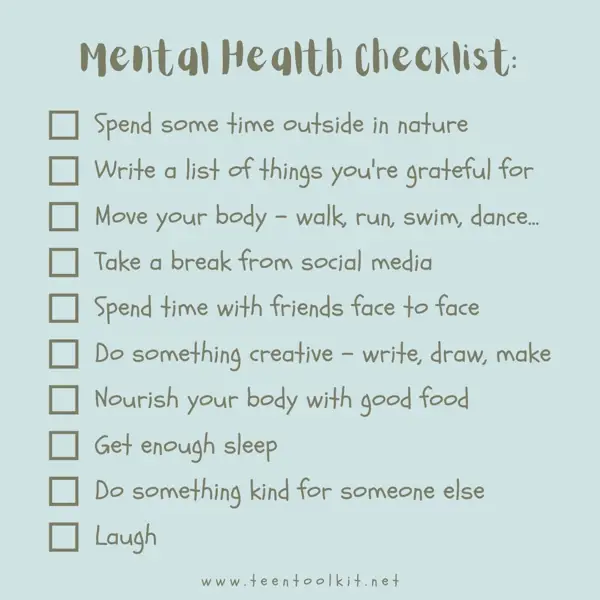
6. Take Breaks and Relax
Give yourself permission to take breaks and engage in activities you find relaxing and enjoyable. It could be reading a book, taking a warm bath, or spending time in nature. Find what works for you.
1. Set aside dedicated time each day for breaks and relaxation.
2. Find activities that help you unwind and relax, such as reading a book, taking a walk, or listening to music.
3. Practice deep breathing exercises to help calm your mind and reduce stress.
4. Incorporate mindfulness or meditation into your daily routine to promote relaxation and self-awareness.
5. Limit screen time and take regular digital detoxes to give your mind a break from constant stimulation.
6. Connect with nature by spending time outdoors, whether it's going for a hike or simply sitting in a park.
Remember, taking breaks and prioritizing relaxation is essential for maintaining good mental health. Make self-care a priority and listen to your body's needs.
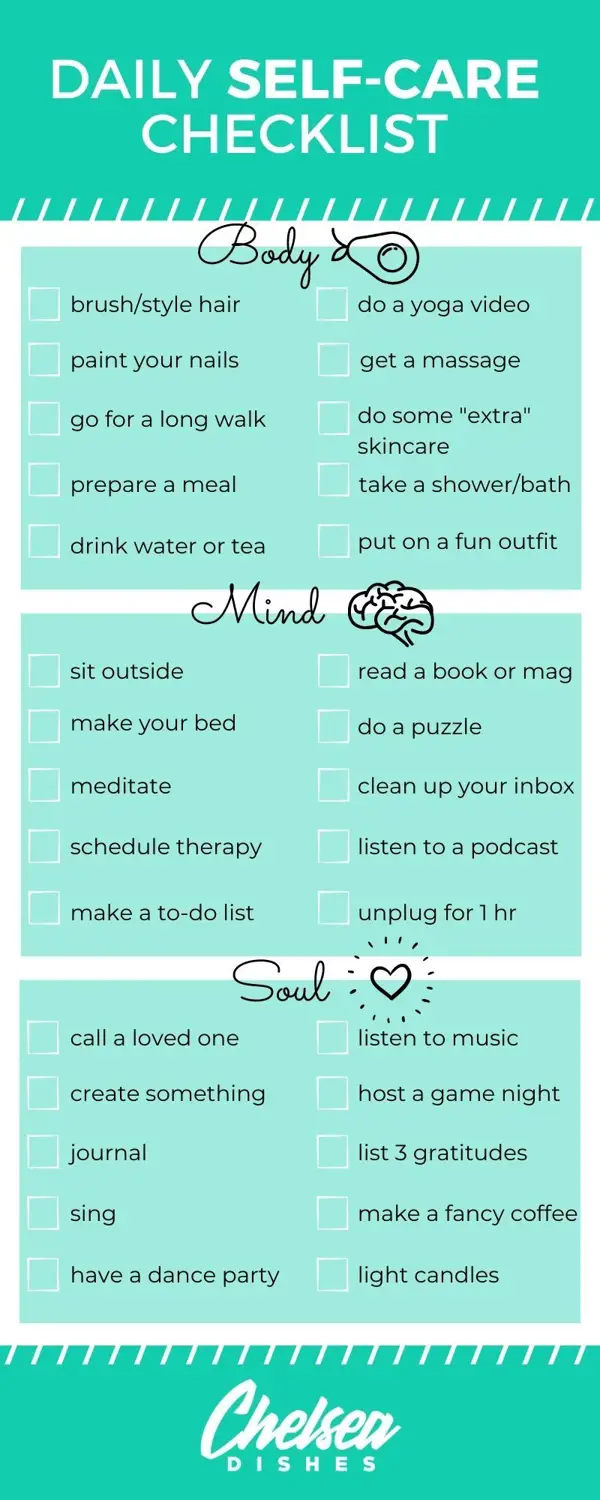
7. Seek Professional Help when Needed
If you're experiencing persistent mental health challenges, seeking professional help is crucial. Therapists and counselors can provide guidance, support, and necessary treatments to improve your mental well-being.
Mental health is important and seeking professional help when needed is a crucial part of self-care. If you are experiencing significant challenges or your mental health is affecting your daily life, it's important to consult with a qualified professional.
Here are some reasons why seeking professional help is essential:
- Professional therapists and counselors are trained to assess and treat various mental health conditions.
- They provide a safe and non-judgmental environment for you to discuss your concerns.
- They can help you gain insights into your thoughts, feelings, and behaviors.
- They can provide effective therapeutic techniques to improve your mental well-being.
- They may suggest appropriate medication, if necessary, and monitor its effectiveness.
- They can support you in developing coping strategies and building resilience.
- They can assist in managing and overcoming mental health challenges, promoting personal growth and healing.
Remember, seeking professional help is not a sign of weakness but rather a courageous step towards taking care of your mental health. Don't hesitate to reach out when you need it!
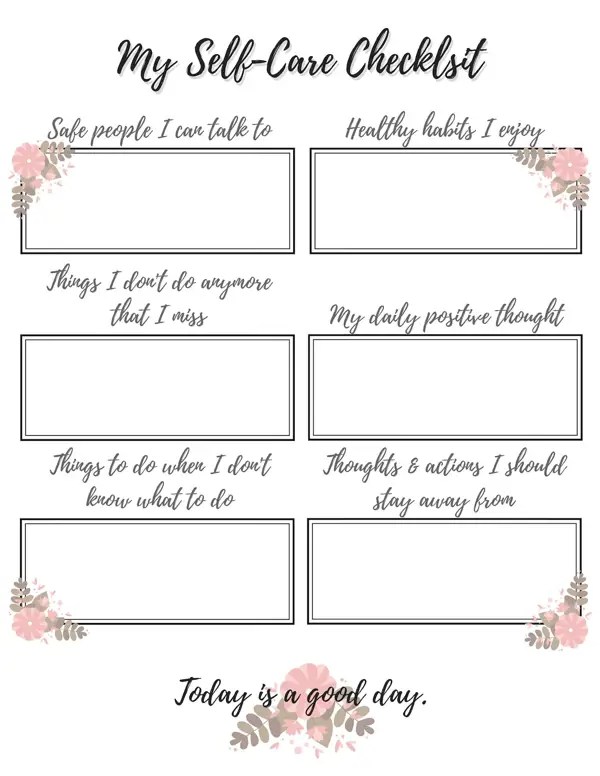
Key Takeaways
- Make quality sleep a priority for mental well-being.
- Regular exercise helps reduce stress and enhances mood.
- Cultivate healthy relationships for emotional support.
- Practice mindfulness and meditation for inner calmness.
- Eat a balanced diet to maintain stable mood and energy.
- Take regular breaks and engage in relaxing activities.
- Seek professional help if needed to address mental health challenges.
Frequently Asked Questions (FAQ)
Q: How can self-care improve mental health?
A: Self-care activities such as prioritizing sleep, exercise, and relaxation help reduce stress levels, improve overall mood, and enhance mental well-being.
Q: Can a balanced diet positively impact mental health?
A: Yes, maintaining a balanced diet that includes essential nutrients is essential for a stable mood, increased energy levels, and overall mental wellness.
Q: When should I seek professional help for my mental health?
A: If you are consistently struggling with your mental health and it starts affecting your daily life, relationships, or ability to function, seeking professional help from a therapist or counselor is recommended.
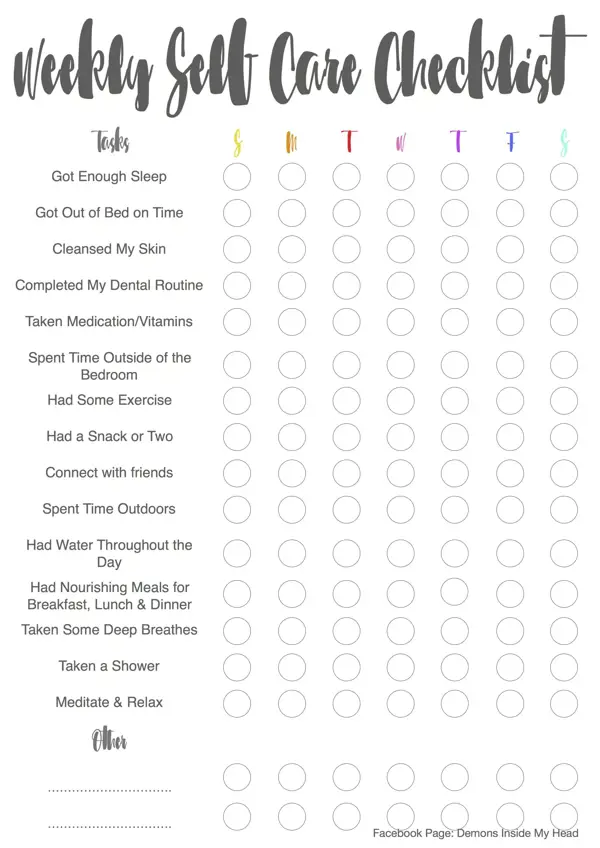


Recent Comments